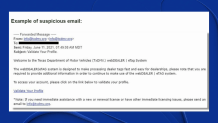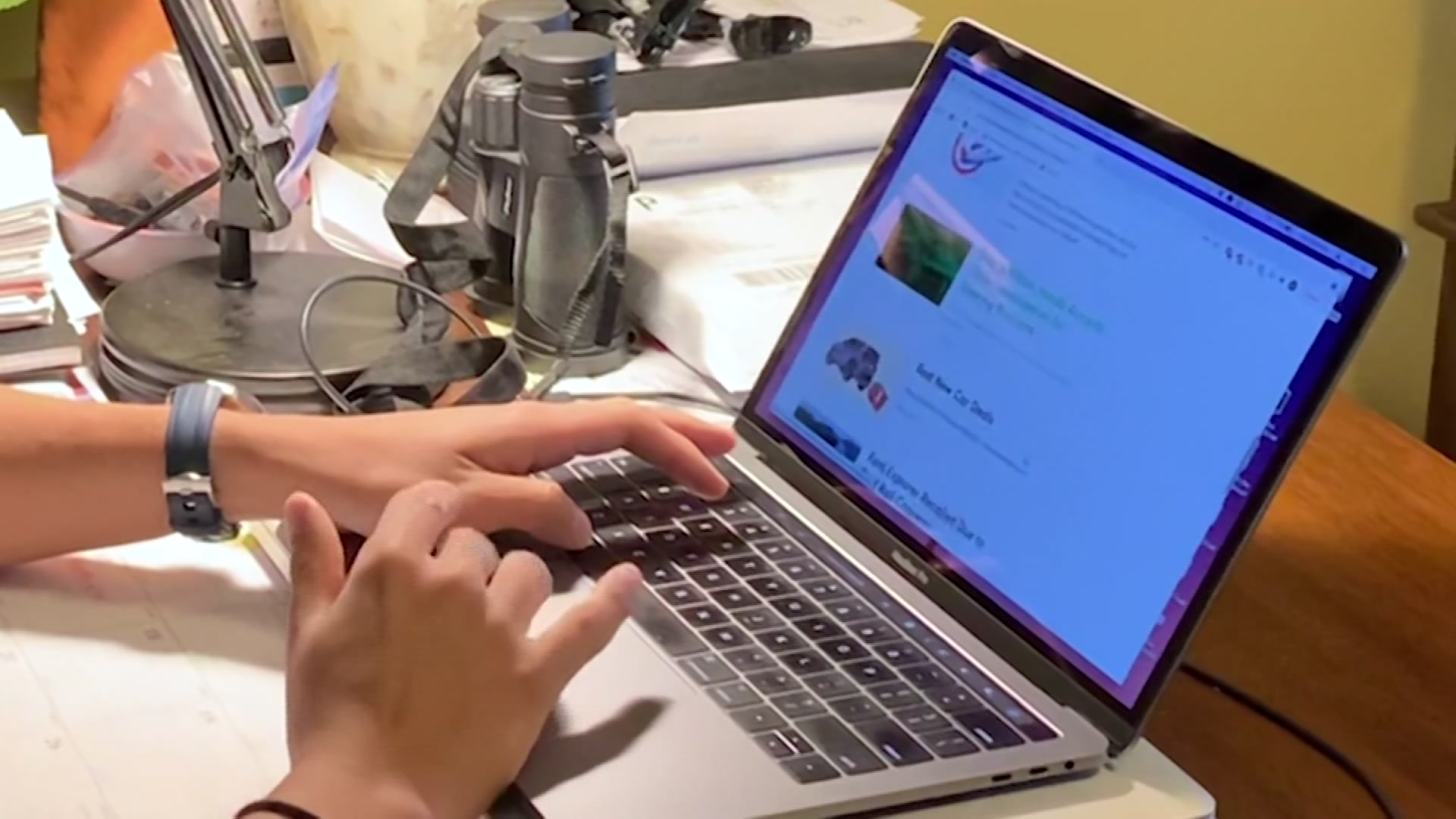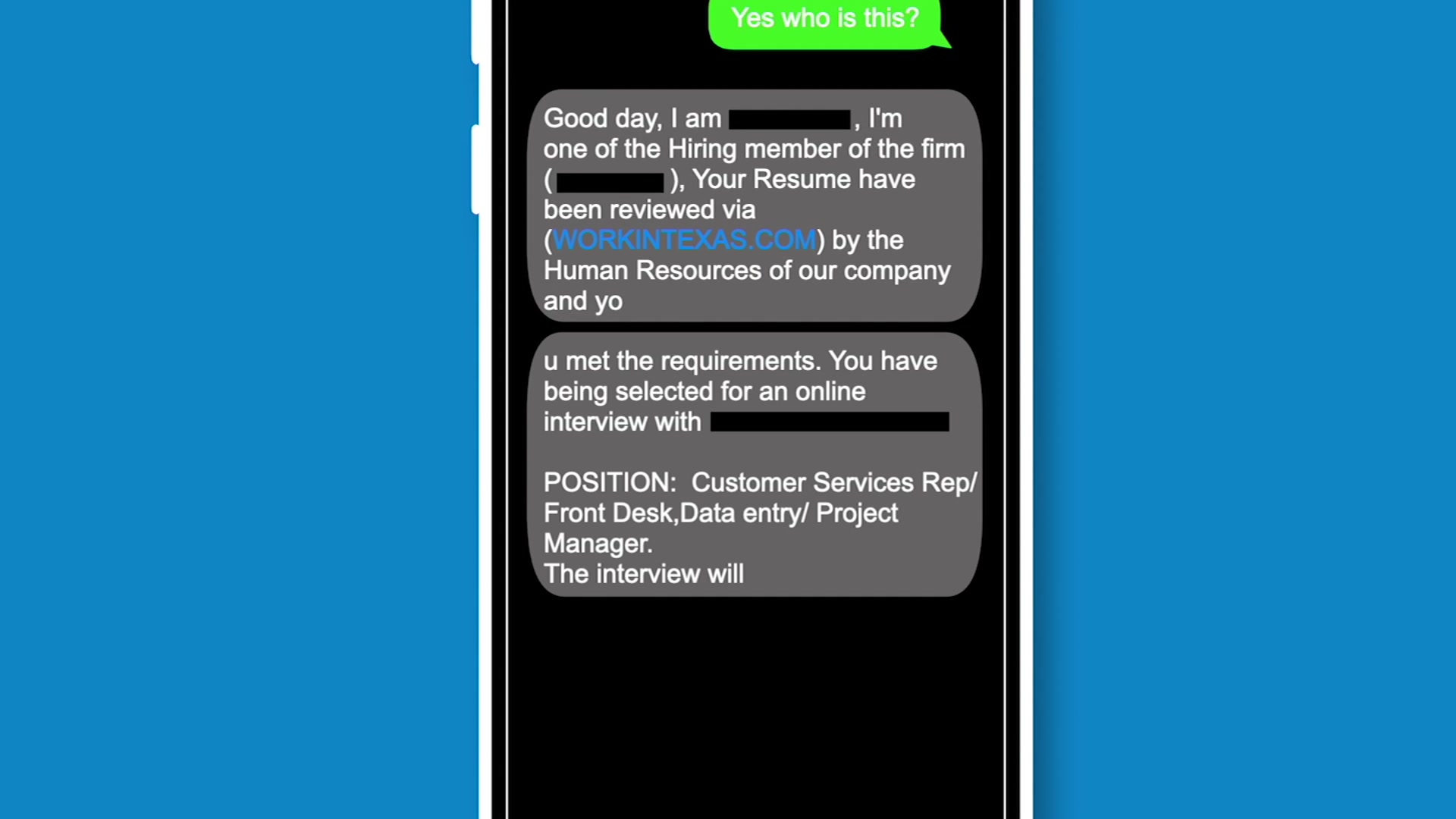The Texas Department of Motor Vehicles says online criminals are targeting Texas drivers with messages that look like they’re coming from the state agency.
Here’s what to look for and what to do if you get one of these messages.
TxDMV: Scam Texts, Emails Have Surged
“There’s always cybercriminals trying to fish for information out there, but we had not seen this many,” said Gus Bernal, a supervisor with the Consumer Relations Division at the TxDMV.
Get DFW local news, weather forecasts and entertainment stories to your inbox. Sign up for NBC DFW newsletters.
The DMV said the recent spate of phishing emails and texts are sent by cybercriminals trying to steal personal information or download harmful files to your computer.
Criminals included key details to make the messages look legitimate. In one scam email, certain letters are correctly capitalized in the words “webDEALER” and “eTAG”.
The scam email address comes from info@txdmv.org which is not legitimate.

If you’re expecting an email from the DMV, it should come from a txdmv.gov address.
If you’ve opted into automated email reminders from the DMV, you may receive legitimate emails from txdmv@public.govdelivery.com.
The DMV said it will never text a consumer. If you receive a text message claiming the DMV will pay you for having a good driving record, that’s a scam.
The Texas DMV said they don’t have any information that leads the agency to believe this latest round of scam emails and texts are related to a data breach at the TxDMV.
What to do if you get a scam message
Do not click on any links and do not reply. If the message came via text, block the sender on your phone and report the text to your cell carrier and delete the text.
Tips to avoid government imposter scams
Government imposter scams are common. Criminals can spoof their phone numbers to make it appear as if they’re calling from the IRS, the Social Security Administration or any other government agency.
The caller may even know your name or something about you.
Bottom line: if someone contacts you and asks for personal information or money, it’s a scam.
Read more from the FTC on government imposter scams on their website.
If you’ve been a victim, here’s where to report the scam.
NBC 5 Responds is committed to researching your concerns and recovering your money. Our goal is to get you answers and, if possible, solutions and a resolution. Call us at 844-5RESPND (844-573-7763) or fill out our customer complaint form.
Get DFW local news, weather forecasts and entertainment stories to your inbox. Sign up for NBC DFW newsletters.



